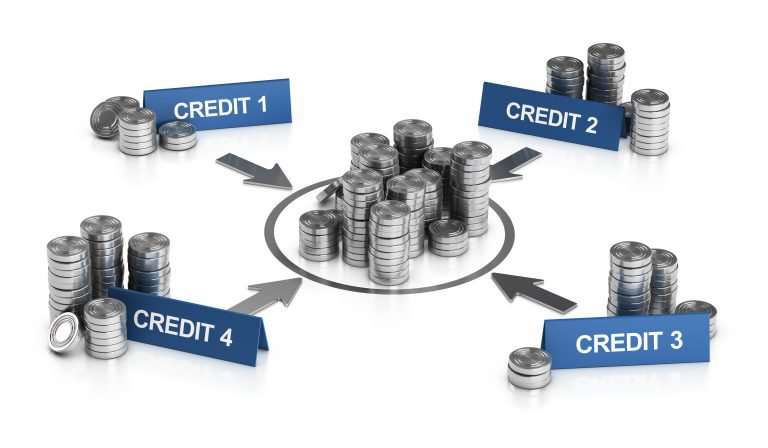8 Simple Steps to Improving Your Credit Score

8 Simple Steps To Improving Your Credit Score
To continue our mini-series on repairing and managing your credit, this week I am sharing with you 8 simple steps that you can take to start improving your credit score so that you can qualify for lower rates on your mortgage, home refinance, and other credit products.
By combining what you read in this article with what we learned in last week’s article, How is Your Credit Score Calculated? , and the post form the previous week, How Long Does Bad Credit Stay On Your Credit Report? , you will be empowered with the knowledge that can help you take control of your credit and ensure that you are positioned to get approved quickly and at the best possible rates and terms available to you when applying for a new purchase mortgage, a home refinance, and more.
If your credit history is bad, you need to work to improve your credit score .
Here Are 8 Things You Can Do To Help Increase Your Credit Score
1. Monitor Your Credit Report And Score
Based on research conducted by the Public Interest Advocacy Centre, almost 1 in 5 Canadians have errors listed on their credit reports. These errors can have severe impacts on their credit scores which can drastically reduce their chances of being able to refinance their home, qualify for a mortgage, or get approved for other credit products.
Although in the case of a mortgage or refinance, the mortgage brokers at Clover Mortgage are usually able to help you get approved and qualify for a mortgage loan through either one of the alternative lending institutions we work with such as a trust company or credit union, or through a private mortgage lender provided that you have enough available equity in your property. The draw back with either of these sub-prime mortgage lenders is that the interest rates tend to be higher than if you were able to qualify at a more conventional lending institution or bank.
By monitoring both your Equifax and TransUnion credit reports and checking them regularly, you will be able to catch common errors such as inaccurate late payments that were actually made on time, incorrect or out dated personal information, old debts that have been fully paid, inaccurate balances, unauthorized hard inquiries, bankruptcies and collections information that should have been removed from your record. All of these errors that are made by the credit bureaus can have serious negative implications on your finances.
Checking your own credit counts as a “soft inquiry” and does not count again your credit score at all. If you find any errors on your credit report, you should dispute them with your credit bureau and they will investigate your claim and provide you with an answer within 30 days for the most part. Having an error corrected and removed from your credit report will usually have an immediate positive effect on your credit score
2. Pay Your Bills On Time
The single most important factor that has the greatest impact on your credit score is your payment history. Payment history account for approximately 35% of your credit score. By making at least your minimum payments on time, no matter how big or how small those payments might be, you will be making one of the best contributions that you can towards ensuring that your credit score remains strong.
Even the smallest late or missed payment will have a negative impact on your credit score and remain on your credit report for up to 6 years! Even a small $50 missed or late payment will hurt your score so be sure to set monthly reminders for yourself and budget accordingly to be able to make all of your payments before they are due.
3. Keep A Low Balance
Credit bureaus keep track of credit utilization ratio and use that to help calculate your credit score. Your credit utilization ratio measures what percentage of the total credit that is made available to you is being used by you. Both credit unions and lenders do not like to see high utilization ratios. In fact, you should always try to keep your balances on your credit cards and other debts below 30% of your credit limits.
For example, if you have two credit cards with a credit limit of $5,000 each and you are carrying a balance of $1,500 on each of them then your credit utilization ratio is calculated as follows:
Total credit limit: $5,000 (limit of credit card 1) + $5,000 (limit of credit card 2) = $10,000 total credit limit
Total debt (utilization): $1,500 (balance on credit card 1) + $1,500 (balance on credit card 2) = $3,000
Credit utilization ratio = $3,000 (total debt) divided by $10,000 (total credit limit) = 30%
If you have a total credit limit of $10,000 and were to keep carrying a balance of less than $3,000 (less than 30%), then your credit score would probably not be affected by your balance. If you were to carry a larger balance while maintaining the same total credit limit, then your credit score will likely be negatively affected as a result. Generally, the lower the credit utilization ratio, the better it is for your credit.
If your credit utilization ratio is higher than 30%, here are 2 things you can do to help lower it:
- Apply for a credit limit increase. By increasing your credit limit, you lower your utilization ratio provided that you do not increase your debt balance. As an example, by keeping your balance the same and doubling your credit limit, you will instantly reduce your utilization ratio by half. The key is not to start spending more and to resist the urge of increasing your debt balance after having increased your credit limit.
- Pay down your existing balance regularly. Credit card companies report their the balance that their customers carry on their credit cards on a monthly basis. If you pay off more of your credit balance before the monthly reporting date, this will help improve your credit score since a lower balance will be reported to the bureaus. Making this a habit will help keep the utilization ratios down on your credit report.
4. Keep Old Credit Accounts Open
Since the length of time that your credit history is active has a direct impact on your credit score, it is important to keep old credit cards and other credit accounts open provided they are in good standing. Even if you do not use them much anymore, having them open and even using them once in a while will positively contribute to the length of your credit history, which will have a positive impact on your credit score.
Keeping old credit accounts open while not carrying a balance on them will also help keep your credit utilization ratios lower. If you close old credit lines then you will be lowering your total credit limit and increase your utilization ratios which can negatively impact your credit.
5. Diversify Your Credit
By having a variety of different types of credit accounts open and in good standing, you demonstrate to lenders that you are capable of responsibly managing your credit across multiple credit channels. Keeping up to date and maintaining low utilization ratios on a combination of credit cards, of credit, a mortgage, installment loans, etc, will positively affect your credit score and help improve and keep it strong.
6. Be Strategic With Credit Applications
Frequent “hard inquiries” such as credit checks by lenders and creditors for the purpose of a credit application will negatively impact your credit score. Even if you are trying to get a mortgage and are shopping around from bank to bank, each time a new bank pulls your credit within a short period of time, it negatively affects your credit. After applying for a mortgage with 3 or more banks, your credit score might decrease so much that you might no longer qualify for a mortgage.
In order to help avoid this problem, when applying for a mortgage or home refinance, consider using a mortgage broker who can shop around with multiple lenders using only one single credit report from only one “hard inquiry” which will not have a significant impact on your credit score. Here are some other benefits to using a mortgage broker when searching for a mortgage of home refinance loan .

7. Consolidate Your Debt
If you are finding it hard to manage your current debt payments and bills, it might be a good idea to consider looking into a debt consolidation loan. By combining all of your higher interest debt payments into one single smaller monthly payment, it can help you get caught up and better manage your monthly expenses and obligations. With the extra money that you free up, you can put that towards paying down your consolidation loan faster, or free up cashflow for other purposes.
Here are a few common forms of debt consolidation loans:
- Credit cards that offer low promotion interest rates for balance transfers from other credit cards
- Taking out a personal or secured line of credit that carries a lower interest rate than your current debts
- Taking out a home equity loan or 2nd mortgage on your property, or refinancing your whole existing mortgage at a lower interest and higher mortgage amount to cover your other debts
Here’s how a mortgage broker can help you get approved for a debt consolidation loan .
8. Get A Secured Credit Card
If you are unable to qualify for a credit card due to a bad credit score, bad credit history, or lack of credit history, you can go to a bank and get a secured credit card to help yourself start establishing or rebuilding your credit. In order to get a secured credit card, you will be required to provide a deposit to the bank or purchase an investment product such as a GIC in an amount that is equal to the credit limit that your credit card will have.
For example, if your secured credit card will have a limit of $5,000, then you will need to put $5,000 into a designated account in order to be able to get the card. Despite the deposit, you will still be required to make your monthly payments on time and pay the balance on the card as required. If you miss payments or make late payments on this card, your credit score will continue to be negatively impacted, even though you put a deposit for the card.
Even if your credit score is low, you can improve it as much as 100 to 200 points in a short period of time by consistently following the steps above. First start by checking both of your credit reports for errors and contacting the respective credit bureaus to fix any errors that you may find. Your next step should be to begin paying all of your bills before the due date as this will have the greatest effect on your credit score. Follow this with ensuring that your credit balances remain less than 30% of your total credit limit. Lastly, if you need help with cashflow and paying down your debts, consider looking into a debt consolidation loan.
Following these steps consistently can help you get on your way to improving your credit score and improving your overall financial situation while becoming debt-free!
Our team of knowledgeable and experienced mortgage brokers at Clover Mortgage can help you develop an effective and realistic plan to help you get out of debt and rebuild your credit.
Call or text us today at 416-674-6222 or toll free at 1-800-673-2230 , or email us at info@clovermortgage.ca to speak with a licensed and experienced mortgage broker and get your free no-obligation mortgage consultation.





